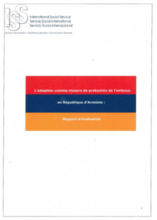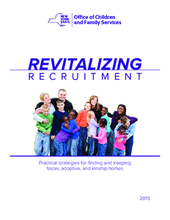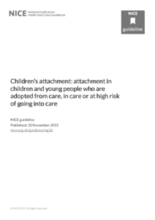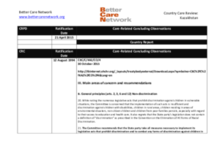Displaying 431 - 440 of 660
This article from the Case Western Reserve Law Review journal in the United States presents a proposal to reduce, and ultimately eliminate, the rehoming of adopted children in the United States.
This chapter discusses the practice of child circulation in Ghana.
Ce rapport est basé sur une évaluation indépendante du SSI réalisée en 2015, sur le mandat de l'UNICEF Arménie et du Ministère de la Justice Arménien. Il s’inscrit dans le cadre d’un projet de réforme lancé par les autorités arméniennes en vue d’améliorer le système de protection de l’enfance et de mieux intégrer les principes de la Convention de La Haye dans la pratique de l’adoption.
This article studies different medical and psychological models of orphanhood and the effects these models have on the resiliency of orphanhood.
As part of phase one of the development of the Martin James Foundation's Asia Care Network, comprehensive studies of the care system in each country were conducted to highlight the need for developing alternative care systems across South-East Asia. This case study highlights the relevant data from the Philippines.
A press release from the Ministry of Women and Child Development, Government of India recapped a series of new initiatives by the Ministry during 2015. The achievements relevant to children’s care are briefly described below and include the launch of the flagship programme Beti Bachao Beto Padhao for protection of the girl child; several initiatives to track, restore, and rehabilitate missing children; and adoption reforms and a new foster care system.
This guide, published by the New York State Office of Children and Family Services, provides a summary of promising practices currently used in recruitment and retention of foster/adoptive families.
This guideline covers the identification, assessment and treatment of attachment difficulties in children and young people up to age 18 who are adopted from care, in special guardianship, looked after by local authorities in foster homes (including kinship foster care), residential settings and other accommodation, or on the edge of care.
This country care review includes the care related Concluding Observations adopted by the Committee on the Rights of the Child.
This country care review includes the care-related Concluding Observations adopted by the Committee on the Rights of Persons with Disabilities and the Committee on the Rights of the Child.






